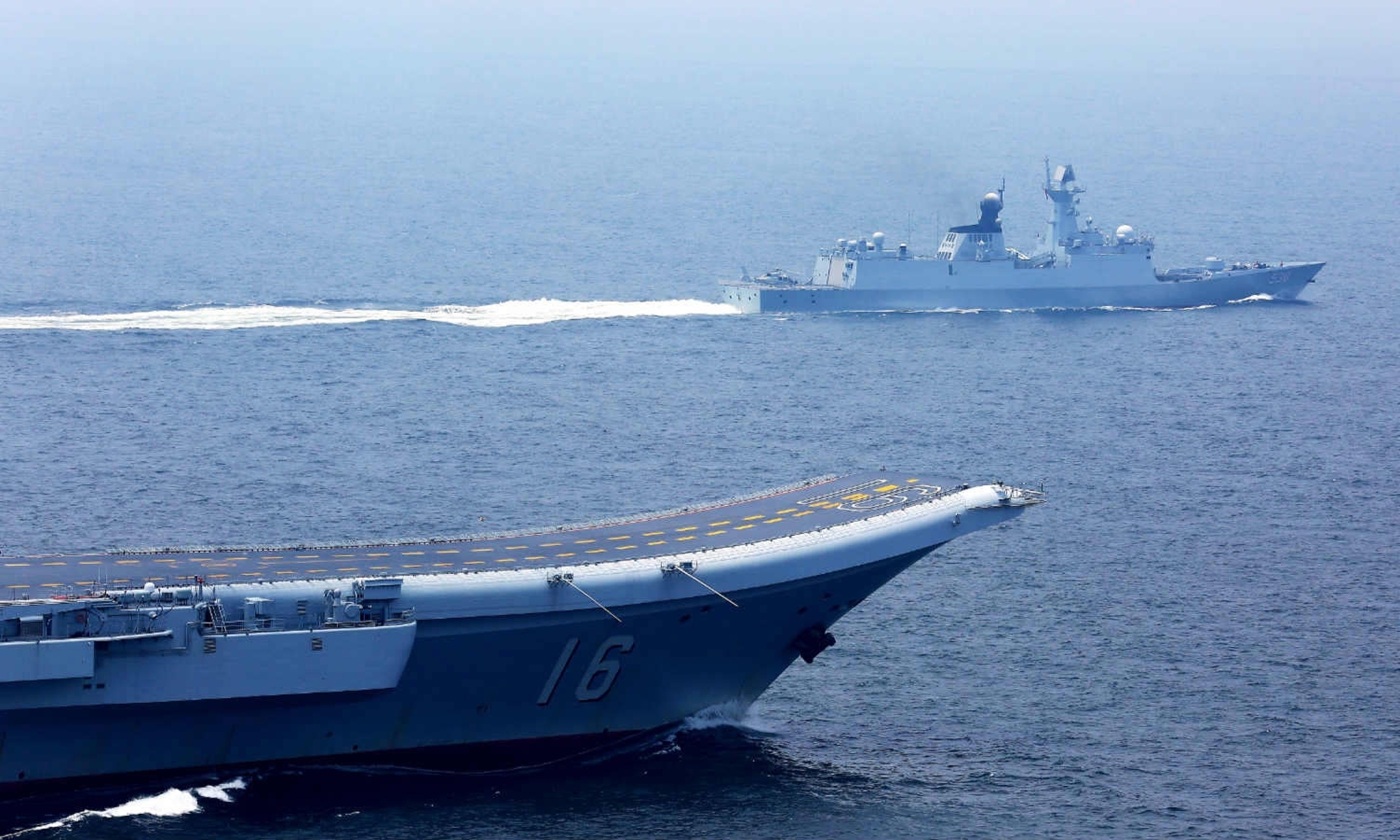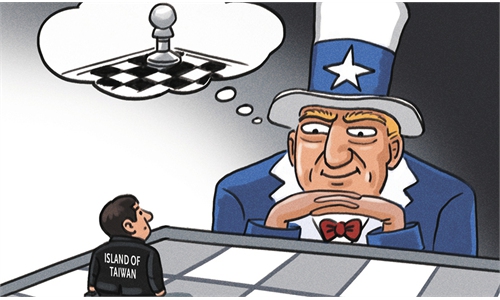
Vessels in the Taiwan Straits, July 20, 2017. /CGTN Photo
Richard Hass, president of the Council on Foreign Relations, and David Sacks, a fellow of the council, published an article in the September issue of Foreign Affairs journal, claiming that the policy of strategic ambiguity toward the island of Taiwan needs to be replaced by a policy of strategic clarity.
Joseph Bosco, the former China director for the secretary of defense, also advocated in September for the US to adopt a strategic clarity policy that he thinks is absolutely necessary.
It is not surprising that some US officials and scholars have recently raised the question of strategic ambiguity again. To further strengthen the containment and suppression of China, playing the Taiwan card is the highest cost-effective. The US hopes to threaten the Chinese mainland by improving its relations with the island of Taiwan and selling arms to the island. But the comprehensive national strength and military advantages of the Chinese mainland are becoming more and more obvious, and the military capabilities on the two sides of the straits are irreversibly unbalanced. As a result, voices have arisen that the US should draw a "red line" to restrain the Chinese mainland.
The sense of urgency among US hawks over the Chinese mainland has been heightened after Chinese military aircraft flied around the Taiwan island and officially denied the existence of the so-called median line. However, different voices regarding policy toward Taiwan are not rare. There was previously talk of abandoning Taiwan, calling on the US to rethink the strategic significance of the island during the administration of former president Barack Obama, but it never came to a real deal.
The strategic ambiguity policy has been the basis of US policy toward cross-Straits relations for decades. It is also in the best interests of the US to maintain its initiative in the Taiwan Straits. From Washington's perspective, it can deter the Chinese mainland from attacking the island, while restraining Taiwan from acting recklessly in the region.
The US would put itself in an awkward position if it clarifies the policy. If the US commits to helping to defend the island, the authorities in Taiwan may well believe that they have "backers" and may further promote "Taiwan independence," which would only deepen the concerns of the Chinese mainland. This could lead to preparations for a military struggle and could even prompt the Chinese PLA to launch a pre-emptive strike on the island of Taiwan.
In such a scenario, the US might choose to honor its commitment to defend the island of Taiwan and engage in direct armed conflict with the Chinese mainland. But an armed conflict between the two nuclear powers is unacceptable and would be devastating to the US. Or it could make verbal statements after Chinese mainland launches military strike on the island of Taiwan. Unfortunately, it would be a major blow to the US' international credibility and the credibility of its commitments. Thus, either option would go contrary to US interests.
If strategic ambiguity shifts to strategic clarity, the situation would be similar to the restoration of the US-Taiwan military alliance, a direct assault on the one-China principle and the three communiqués between China and the US. Another choice for the US would be a more subtle expression, which states only that certain actions will be taken, but does not further elaborate what the specific actions are. However, whether and how to fulfill the commitment would greatly restrict the US.
If the strategic ambiguity policy is clarified at an extreme level, China-US relations would be severely damaged, or even severed, and peace and stability across the Taiwan Straits would cease to exist.
As former US national security advisor John Bolton notes in his book, President Donald Trump doesn't really care about the Taiwan question. Trump suggested that Taiwan is only the size of a pen in comparison to the Resolute desk in the Oval Office. Even if Trump is re-elected, there is little prospect of a shift to strategic clarity. If Joe Biden wins, tensions over the Taiwan Straits are something Biden's team needs to address; there may be less attention paid to the Taiwan question.
One of the reasons for the US to insist on strategic ambiguity is that it does not want the Chinese mainland to reunify the island of Taiwan by force, while it fears that the island of Taiwan could deliberately make provocations thus dragging the US into a war. Also defined as the effect of "dual deterrence," this factor is becoming even more important. It is not only because the danger of "Taiwan Independence" is growing, but also because the Chinese mainland's strength advantage over Taiwan is too obvious. Therefore, it is more necessary for the US to continue to play the role of "dual deterrent," instead of rushing into danger.
The author is deputy director of the Center for American Studies at Fudan University. opinion@globaltimes.com.cn



